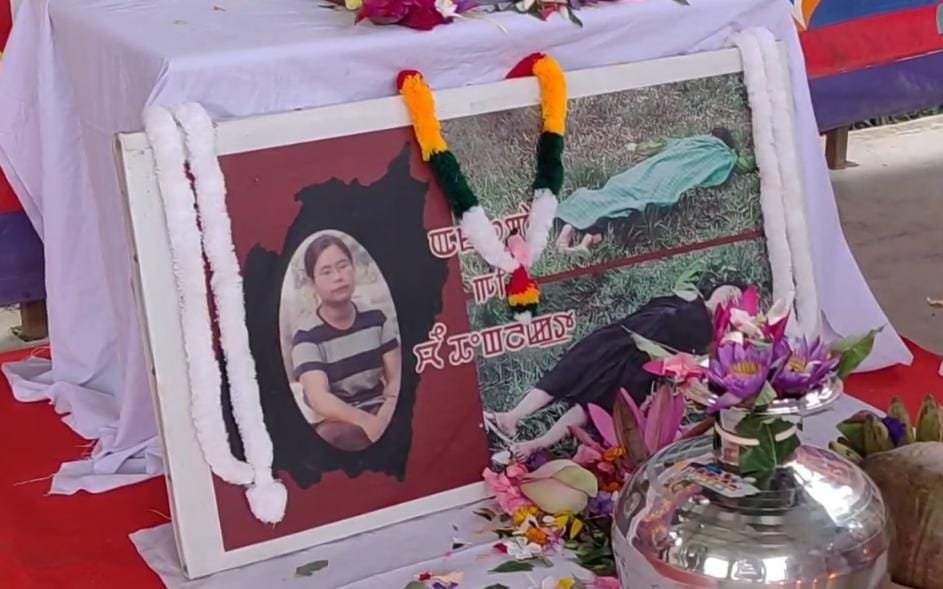The 21st death anniversary of Thangjam Manorama was solemnly observed today at Bamon Kampu Community Hall, in a commemorative event jointly organised by the Thangjam Manorama Memorial Charitable Trust and Apunba Lup, Manipur. The observance served as a powerful reminder of the unresolved injustice surrounding her brutal killing, allegedly committed by personnel of the 17th Assam Rifles in 2004 under the controversial Armed Forces (Special Powers) Act, 1958 (AFSPA).
Floral tributes were paid to Manorama, whose death triggered one of Manipur’s most iconic civil protests — including the nude demonstration by the Meira Paibis in front of Kangla Fort — demanding justice and the repeal of AFSPA.
Addressing the gathering, Apunba Lup Coordinator Phulindro Konsam strongly condemned the continued imposition of AFSPA in Manipur. He asserted that the Act perpetuates systemic human rights violations and grants impunity to security forces. Konsam also criticised political leaders for their silence, calling it a betrayal of the people’s long-standing demand for justice and dignity.
He further contextualised AFSPA as a colonial-era legacy, tracing its origins to the British Armed Forces Special Powers Ordinance of 1942. Despite India’s political progress, he argued, laws like AFSPA reflect a lingering militarised approach to governance in the Northeast.
The memorial programme was attended by several civil society leaders, including Joy Chingakham, Rupachandra Nongthombam, Joy Konthoujam, and Thiyam Nilbir, President of the Thangjam Manorama Memorial Charitable Trust. All speakers reiterated the urgent need for the complete repeal of AFSPA from Manipur and the region at large.
With Manorama’s garlanded photograph placed prominently at the venue, the event concluded with a renewed pledge to continue the fight for justice and to honour her memory as a symbol of resistance against state violence and oppression.









